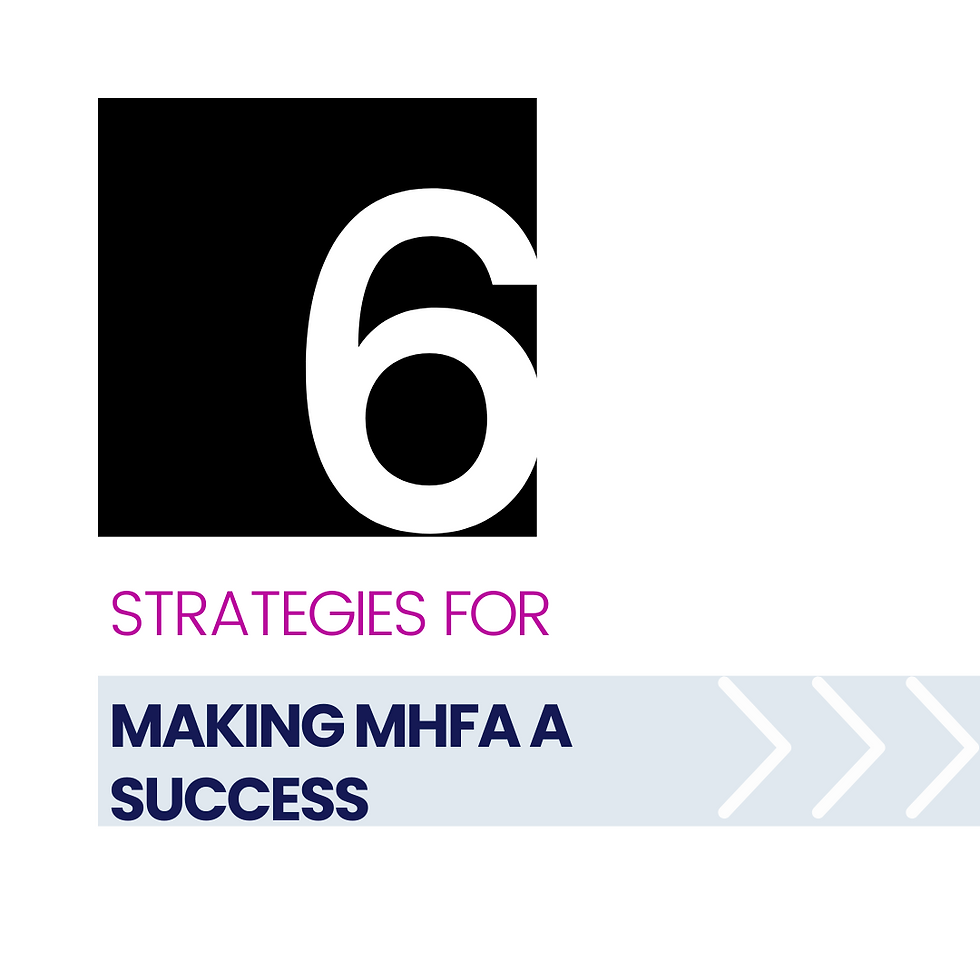Digital Dilemma: How Screen Time Fuels Gen Z Burnout
- Joanna Buckland

- Mar 29, 2024
- 3 min read
Updated: Jul 6, 2025
Organisations are increasingly recognising a significant issue affecting the workplace: the mental health and resilience of the younger generation seem to be declining. This concern is not without evidence. A study conducted over three years by the Resolution Foundation think tank, financially supported by the Health Foundation charity, has revealed that currently, 1 in 3 individuals aged 18 to 24 are reporting symptoms indicative of common mental health conditions, like depression or anxiety disorders. This is a noticeable increase from 2000, when the statistic was 1 in 4 [1].

The label "snowflake generation" is often dismissively applied to Gen Z by older generations. Yet, the tendency for each generation to view the next as less capable is not new. This raises an important question: Are we simply witnessing a traditional rite of passage for a new generation, or are there distinct factors at play affecting the mental wellbeing of today's younger population?
We consume 74GB of daily infomration. That's more than we would have received over an entire year 500 years ago.

A significant cultural shift for Generation Z is their upbringing in the digital age. Currently, we consume an average of 74 GB of information daily—a stark contrast to what would have been received over an entire year 500 years ago, with this number growing by 5% each year [2]. This surge of information, especially via social media, challenges our natural inclination to compare ourselves with others. Historically, such comparisons were limited within small tribal communities, essential for survival to ensure inclusion and contribution. Now, our
'tribes' have expanded globally, presenting us with an endless array of comparisons. The continuous exposure to others' curated highlights doesn't just prompt us to compare; it often leads us to feel inadequate. This sense of falling short is particularly pronounced for Gen Z, who have grown up online.
Real Stories from the Workplace
In a direct conversation with an employer, I was made aware of an incident that underscores this issue. An employee was visibly distressed after returning from a lunch break where they had tripped in public, feeling that everyone's eyes were on them. The employer found the employee's intense reaction to a seemingly minor incident perplexing. Yet, this scenario is more than just an isolated event; it reflects the broader pressures younger people face to appear perfect and the fear of making mistakes in public. The research supports this observation.
But isn’t perfectionism a good thing?
Perfectionism spans a spectrum from being a motivational force to becoming a source of relentless self-criticism. The latter, unhealthy form of perfectionism is a breeding ground for stress, anxiety, and depression. Recent studies indicate that both self-oriented and socially prescribed perfectionism are linked with a higher risk of burnout, with younger generations being increasingly affected [3]. Research led by Thomas Curran, PhD, and Andrew Hill, PhD, has documented a sharp rise in perfectionism between 1989 and 2016, including a 10% increase in self-oriented perfectionism, a 33% surge in socially prescribed perfectionism, and a 16% increase in other-oriented perfectionism among college students [4]. This trend, suggested in the study to be influenced by increasingly competitive educational examinations and social media is a clear indicator of a significant issue requiring attention.
5 Strategies to Tackle Workplace Perfectionism
In navigating these challenges, we're not just addressing the symptoms but getting to the heart of what it means to create a supportive, healthy work environment for all generations. Here are 5 strategies to addressing perfectionism in the workplace:
Developing a Supportive Work Environment: It's essential for organisations to create an atmosphere where mental health is openly discussed. Establishing a wellbeing team trained to recognise mental health issues and guide employees to the right support, and offering employee counselling can significantly enhance overall wellbeing.
Offering Mental Health Training Programmes: Programmes focused on mental health awareness, stress, and burnout prevention can provide employees with the tools to manage stress and build resilience effectively.
Encouraging Realistic Goal Setting: Setting achievable goals and valuing effort as much as outcomes can help reduce perfectionist tendencies, enabling young workers to value progress, learn from setbacks, and develop resilience.
Promoting Work-Life Balance: Encouraging a balance between professional and personal life is crucial. This involves respecting boundaries, endorsing time off, and recognising the importance of downtime for mental and physical health.
Creating a Culture That Embraces Mistakes as Part of the Learning Process: Cultivating a work environment where mistakes are seen as opportunities for growth can significantly change the perception of perfectionism, fostering a more adaptable and flexible workforce.
If you would like to discuss topics discussed explored in this area, contact our team today!
References:
2) Bohn, R., and Short, J. 2012. Measuring consumer information. Int. J. Comm. 6:980–1000.
3) Holden CL, Jeanfreau MM. Are Perfectionistic Standards Associated with Burnout? Multidimensional Perfectionism and Compassion Experiences Among Professional MFTs. Contemp Fam Ther. 2023;45(2):207-217.




Comments